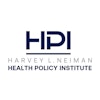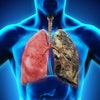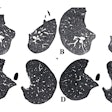The onset of menopause has been tied to an increased risk of cardiovascular disease, but the exact role of hormone replacement therapy (HRT) is still a gray area.
A number of studies have indicated that postmenopausal HRT may reduce that risk. On the other hand, there is strong evidence that HRT, especially the combination of estrogen and progestin, significantly increases the risk of coronary artery disease.
In a study using electron beam tomography (EBT), investigators from the Harbor-University of California, Los Angeles Research and Education Institute in Torrance evaluated the progression of coronary artery calcification (CAC) in relation to HRT in asymptomatic, postmenopausal women.
"The weight of evidence-based medicine now lies against HRT, although it is difficult for experts to reconcile the vast number of beneficial observational studies," wrote Dr. Matthew Budoff and colleagues. "Our study demonstrated that HRT use (most markedly in the estrogen group alone) slows the progression of CAC, as compared with similar women not taking HRT" (Journal of Women's Health, June 2005, Vol. 14:5, pp. 410-417).
For this study, 177 peri- and postmenopausal women (mean age 52.1), underwent two EBT scans (Imatron C-150XL, GE Healthcare, Chalfont St. Giles, U.K.) at least one year apart. Imaging was trigged by electrocardiography "so that each image was obtained at the same point in diastole, corresponding to 40% of the RR interval.... Coronary calcium was defined as a plaque of at least three contiguous pixels with a density of >130 HU."
Of the women on HRT, 64% were on estrogen alone and 36% were on estrogen plus progestin. Fifty-five percent reported HRT use for a mean of 14 years.
The results showed that the average change in the Agatston calcium score for the entire group was 19.4% per year. There was an increase in the incidence of hypertension among HRT users (31% versus 24% in non-HRT users). Calcium progression was 14.6% in HRT users and 22.3% in nonusers.
The annual increase in calcium scores for the estrogen plus progestin group was 24%. In the women who were on estrogen only, the progression rate was much lower at 9%.
"The current study ... suggests that there may be a benefit to unopposed estrogen, with a slowing of subclinical atherosclerosis by 63% compared with the estrogen plus progestin group.... This suggests a loss of cardiovascular benefit when using progestin," the authors stated.
The researchers acknowledged that their study had limitations: it was observational and not randomized. Also, there may have been a compliance bias as long-term HRT users were more likely to exercise and maintain a better lifestyle, contributing to a decrease in coronary calcium progression.
However, they stressed that there is still a possible cardiovascular benefit in women taking estrogen alone, and that long-term lipid improvement may occur.
Results from the Kronos Early Estrogen Prevention Study (KEEPS) should offer more information. KEEPS is a randomized, controlled, double-blinded trial of 720 women designed to provide prospective data on the risks and benefits of early menopausal hormone therapy and the progression of atherosclerosis. Ultrasound and EBT will be used to measure carotid intimal medial thickness and calcium progression in this patient population.
By Shalmali Pal
AuntMinnie.com staff writer
August 3, 2005
Related Reading
Depressed women may literally be 'heartbroken,' cardiac study shows, June 24, 2005
Canadian cardiologists define low risk for women with chest pain, May 30, 2005
Imaging tackles cardiac 'octopus pot' syndrome, April 19, 2005
Copyright © 2005 AuntMinnie.com




















